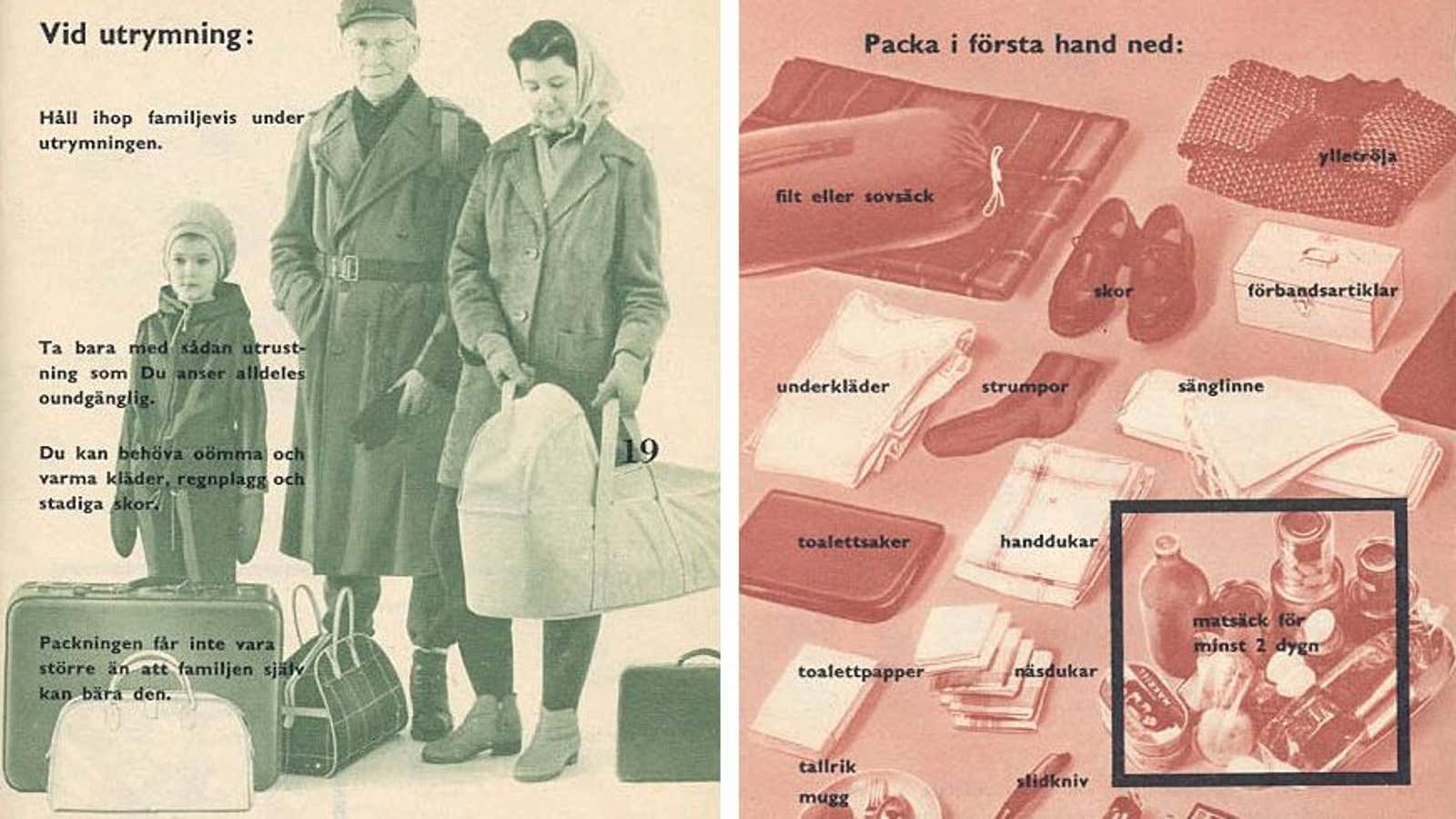Sweden first issued an advisory pamphlet on how to cope with the outbreak of war in the 1940s. The pamphlet was delivered to every Swedish household, telling them how to prepare for and act in a national crisis. Of course, in 1991 when the Cold War ended, the leaflet was discontinued.
But after 30 years where the pamphlet fell into redundancy, the Swedish government has decided to resurrect it.
Sweden is now reissuing the pamphlet—named Om kriget kommer (If War Comes)—to every household in Sweden during the country’s Emergency Preparedness Week in the end of May this year. It will be delivered to some 4.7 million Swedish households.
The government decided that there’s a growing need for people to know how “to prepare for a crisis and threat of war,” says Christina Andersson, a spokesperson for the Swedish Civil Contingencies Agency, the government administrative authority tasked with producing the new version of the booklet. The pamphlet doesn’t just focus on threats posed by war, but also terror attacks and natural disasters.
The updated pamphlet will offer practical advice on home preparedness—how to handle basic needs such as food, water, heating, and communication—“when every day life turns up side down,” Andersson says. The pamphlet has information what to do in an air-raid shelter and what belongings Swedes should pack in case of timely departures (ID, clothing and gas masks). Citizens will also be informed on what the government’s (particularly the defense department) response to a national crisis will be, including what different high alerts mean. Finally, the pamphlet will also give advice on how to handle false information and propaganda.
Sweden reinstated the military draft last year, citing recruitment issues and Russia. The country has also moved closer to NATO in the past year (Sweden is currently not part of the alliance), partly in response to Russia building its military capabilities in the region (Russian jets have frequently infringed on Swedish airspace) and the growing fear of Russian espionage activity in the country.




